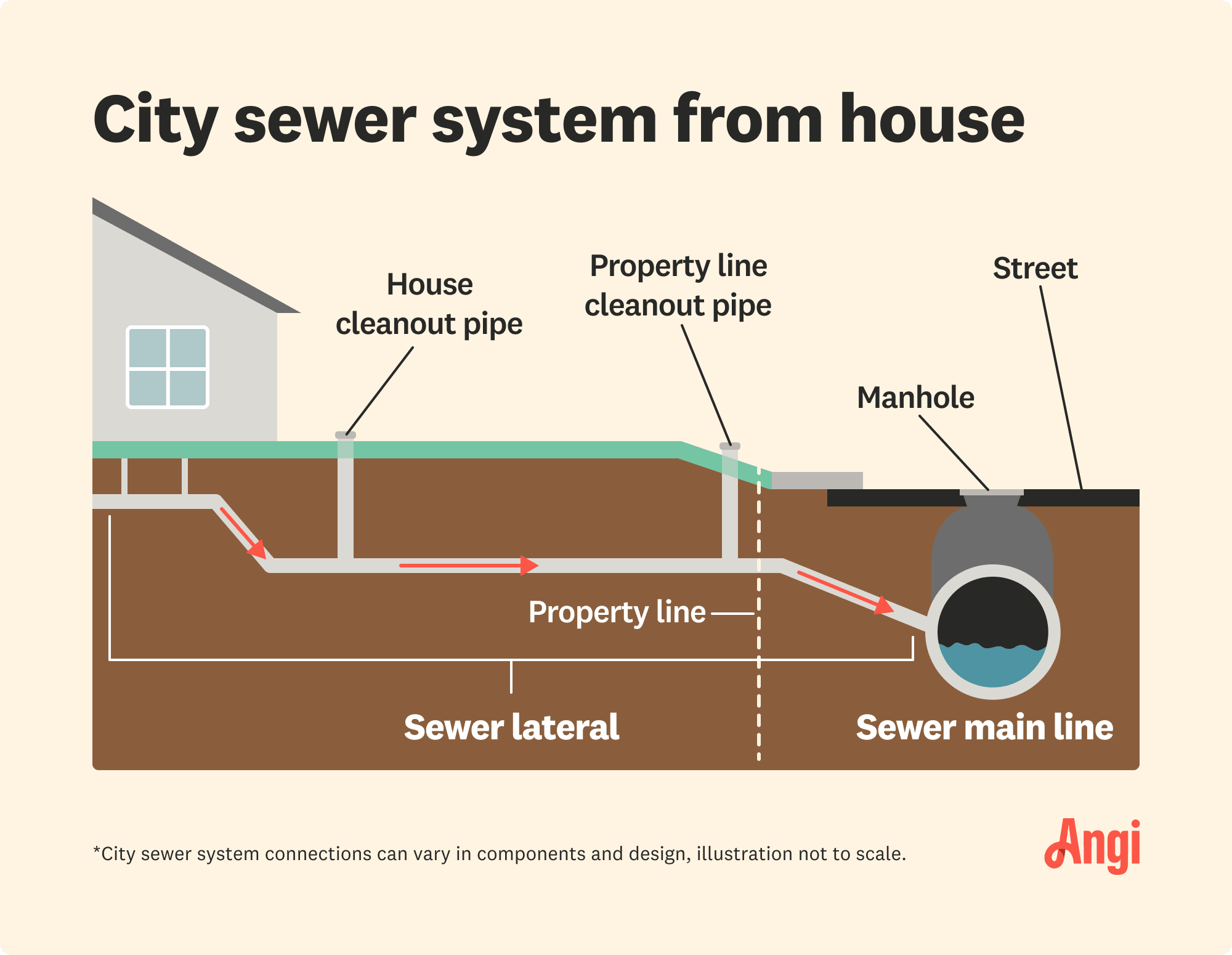
Roto-Rooter plumbing services can help you unclog drains, fix leaks, or provide remediation services after a flood. Learn the average cost to hire a local specialist and how they can help you.
Septic tank service costs depend on your project and location. Check with a local pro for your specific job.
Due to Phoenix's expansive soil, PEX, copper, and cast-iron pipes are the ideal sewer line options.
The required permits for a sewer line installation in Phoenix cost about $250.
While home values don’t necessarily increase after a new sewer line installation, replacing a failing system can help prevent a decrease in value.
If you’re a resident, it may be encouraging to know that the cost to install a sewer line in Phoenix, Arizona, is about 19% less than the national average. This comes out to a range of $1,078 to $4,671, or an average of $2,874. Find out how much your project will cost based on the sewer line length, the type of sewer pipe, and more.
These are the major installation cost factors to consider when budgeting for your sewer line installation in Phoenix, Arizona.

The average cost to install a sewer line ranges from $50 to $250 per linear foot. Sewer line pipes are about 5 inches in diameter and run underneath your yard from your house to the main sewer drain.
| Piping Length (Feet) | Average Cost |
|---|---|
| 30 | $1,225–$6,100 |
| 40 | $1,625–$8,125 |
| 60 | $2,425–$12,175 |
| 80 | $3,250–$16,250 |
To install a sewer line, you’ll need to purchase the pipes that connect the main sewer drain to your home. New pipes cost around $3 to $20 per linear foot. Factor in the type of piping material to gain a closer estimate as to how much you’ll pay per linear foot by referencing the following chart.
Keep in mind that the soil in Phoenix is expansive and collapsing, meaning that it swells and shrinks depending on the moisture levels.
| Type of Pipe | Average Cost (Per Linear Foot) | Pros | Cons |
|---|---|---|---|
| Cast iron | $1.50–$10.00 | Durable | Heavy, can sink into the soil, likely needs to be replaced |
| Copper | $16.25–$24.50 | Long-lasting,works well in extreme heat | Costly, requires regular maintenance |
| PEX | $1.50–$4.00 | Works well in expansive soils, extreme temperature resistance | Pipes require insulation to ensure longevity |
| PVC | $0.50–$4.00 | Most affordable | Only works in stable soil |
Trenching: $800 per 100 linear feet
Boulder removal cost: $650–$1,200 per boulder
Tree removal cost: $200–$2,000 per tree
Pavement removal cost: $8–$15 per square foot
The following costs are related to hiring a sewer line repair pro in Phoenix, Arizona, and adhering to permit requirements.
Permits are required for sewer line installations in Phoenix. A standard sewer tap, or connection fee, is $95. If the project is in the right-of-way of Maricopa County sidewalks or streets, you’ll need to get a permit from the Maricopa County Department of Transportation (MCDOT). These right-of-way permits cost $150 for residential projects.
Labor is a large portion of the total costs because the job is time- and labor-intensive, and pros charge between $25 and $200 per linear foot. Unlike some other home improvement projects, this one requires hiring a skilled pro with experience taking on these complex plumbing projects.
Sewer line installation doesn’t increase your home’s value in Phoenix, because it’s an expected feature for the functionality of the home. However, if your home has an old, failing sewer line, replacing it can help prevent a decrease in home value. Otherwise, you can expect your home’s asking price to be lower due to the high repair costs that the new buyer will be responsible for.
Home is the most important place on earth, which is why Angi has helped more than 150 million homeowners transform their houses into homes they adore. To help homeowners with their next project, Angi provides readers with the most accurate cost data and upholds strict editorial standards. We survey real Angi customers about their project costs to develop the pricing data you see, so you can make the best decisions for you and your home. We pair this data with research from reputable sources, including the U.S. Bureau of Labor Statistics, academic journals, market studies, and interviews with industry experts—all to ensure our prices reflect real-world projects.
Want to help us improve our cost data? Send us a recent project quote to [email protected]. Quotes and personal information will not be shared publicly.
From average costs to expert advice, get all the answers you need to get your job done.

Roto-Rooter plumbing services can help you unclog drains, fix leaks, or provide remediation services after a flood. Learn the average cost to hire a local specialist and how they can help you.

Concrete is one of the longest-lasting septic tank materials. Find out concrete septic tank prices for your wastewater management project.

Need to prevent sewer backflow on your property? Explore the factors of backflow preventer installation cost, including device types and common add-ons.

A sewage smell outdoors is not only gross, but it indicates a possible health hazard. Learn how to get rid of the septic smell outside and when to call a pro.

When considering a home in a rural area, you may not have access to a municipal sewer system. Learn all about living with well water and a septic tank before taking the plunge.

Gurgling, slow drains could mean a main sewer line clog, which can be messy and smelly. Learn how to clear a main sewer line clog yourself with this guide.